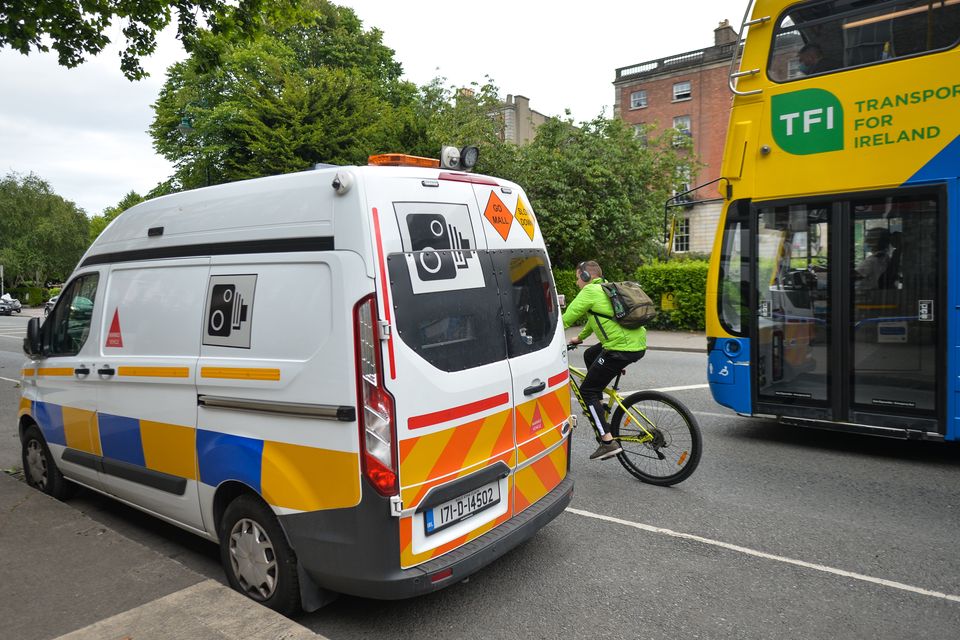Legal doubts emerge over plan to use speed cameras to catch drivers using phones
Speed cameras could soon be used to tackle phone use. Photo: Getty
A legal question has arisen over plans to use speed cameras to also detect motorists who are on their phones.
Last month, Justice Minister Helen McEntee said traffic cameras would soon be used to spot the use of phones behind the wheel.
It would allow the issuing of automatic fines just as the camera set-up enables automatic fines for breaking the speed limit – although recipients of fixed notices can opt for a court appearance instead.
Ms McEntee said existing cameras could detect drivers with a phone to their ear, and would also be able to see unused phones in a driver’s lap, resulting in separate action, because that is also an infringement.
She made the remarks after checking on the ability of cameras and the practicality of taking new steps in a meeting with the Road Safety Authority yesterday.
Today's News in 90 Seconds - May 8th
But it is understood legal advice is now being sought by the Department of Transport on whether legislative change is needed on the application of camera-based enforcement on the non-wearing of seatbelts and phone use.
“If not, this will proceed,” a government source said. “But if legislation is required, it will be introduced urgently.
“The Government is determined to allow speed cameras to catch people using their phone behind the wheel and not wearing a seatbelt, which is a legal requirement.”
Taoiseach Simon Harris chaired a meeting of relevant ministers last week to discuss the number of road fatalities — and both the issue of phone use and declining seatbelt usage were mentioned in the wider context of increased speeding. It is understood the Taoiseach told the meeting that too many people had lost their lives on roads so far this year.
Transport Minister Eamon Ryan has, meanwhile, said extra cameras would be rolled out in Dublin and then nationwide to catch motorists ignoring red lights.
It will also tackle the issue of private cars driving in bus lanes in order to jump a queue of traffic, which is also a hazard to cyclists who legitimately share the public-transport corridors.
Meanwhile, the non-surrender of driving licences to the courts remains an issue, junior transport minister Jack Chambers has acknowledged.
A notification of disqualification is issued by the Courts Service for convicted drivers.
The notice includes the requirement to surrender the driving licence or learner permit to the NDLS within 14 days of the first day of disqualification.
In 2022, there were 7,867 disqualifications, but only 140 surrenders of a licence.
Last year, after increased warnings, there were 9,035 disqualifications, substantially up on the previous 12 months. The number surrendered virtually quintupled – but the 678 people who handed over their licences still amounts to only one driver in every 13 disqualified.
Despite the public defiance, An Garda Síochána has access to data on the department’s National Vehicle and Driver File. This means gardaí can detect and prosecute a driver who continues to drive while disqualified because the file shows the exclusion, even if the motorist produces the licence.
In a case where a licence has not been surrendered, gardaí will impound the vehicle.
Join the Irish Independent WhatsApp channel
Stay up to date with all the latest news















